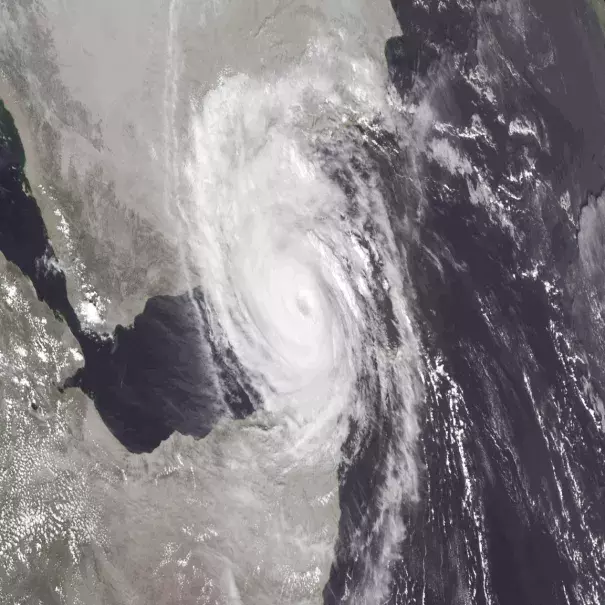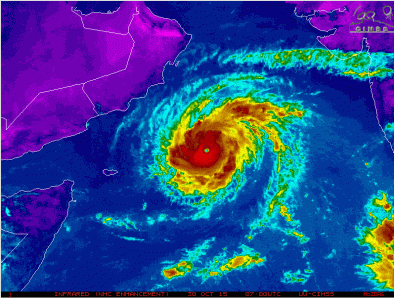Headline
Nearly 40,000 Displaced After Cyclone Chapala Slams Into Yemen
Yemen

Satellite image of Cyclone Chapala. Photo: Vice
"One of the things that there tends to be some agreement on [across different studies], is that the Arabian Sea, the northwest Indian Ocean— we expect it to be somewhat more favorable to tropical cyclones as you add greenhouse gases to the planet, and as the planet adjusts to those greenhouse gases," [NOAA oceanographer Gabriel Vecchi] said. He added that the research about the effect of global warming on storms in this region is focused on end of this century. "So we need to be careful about over-interpreting these results about the end of the 21st-century when sitting in 2015."
Related Content
Science Source
| Springer
Monitoring and Prediction of Tropical Cyclones in the Indian Ocean and Climate Change
U. C. Mohanty, M. Mohapatra, O. P. Singh et al
Headline

Feb 1, 2016 | WxShift
Cyclone Chapala Threatens Yemen With Flooding Rains
Science Source
| American Meteorological Society
A Climatology of Arabian Sea Cyclonic Storms
Amato T. Evan & Suzana J. Camargo
Science Source
| Nature Climate Change
Trade-off between intensity and frequency of global tropical cyclones
Nam-Young Kang & James B. Elsner


